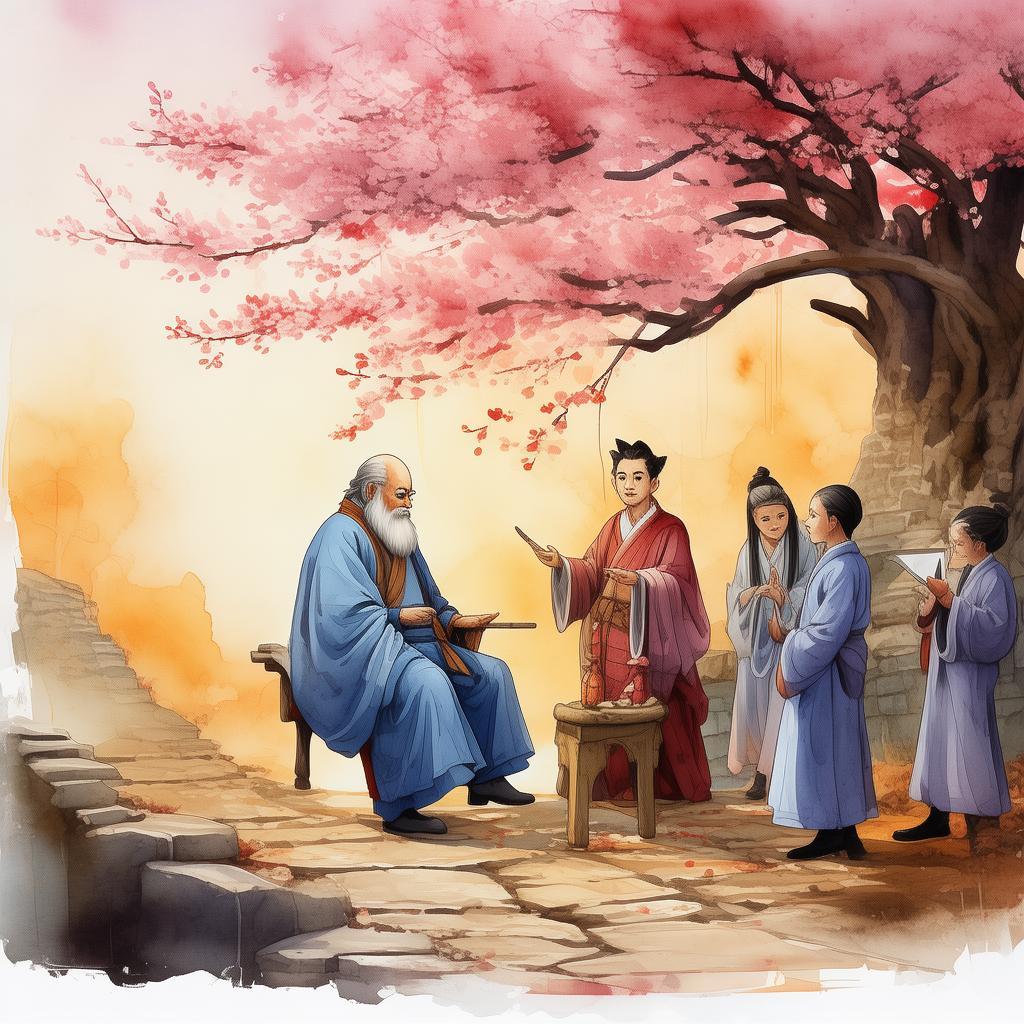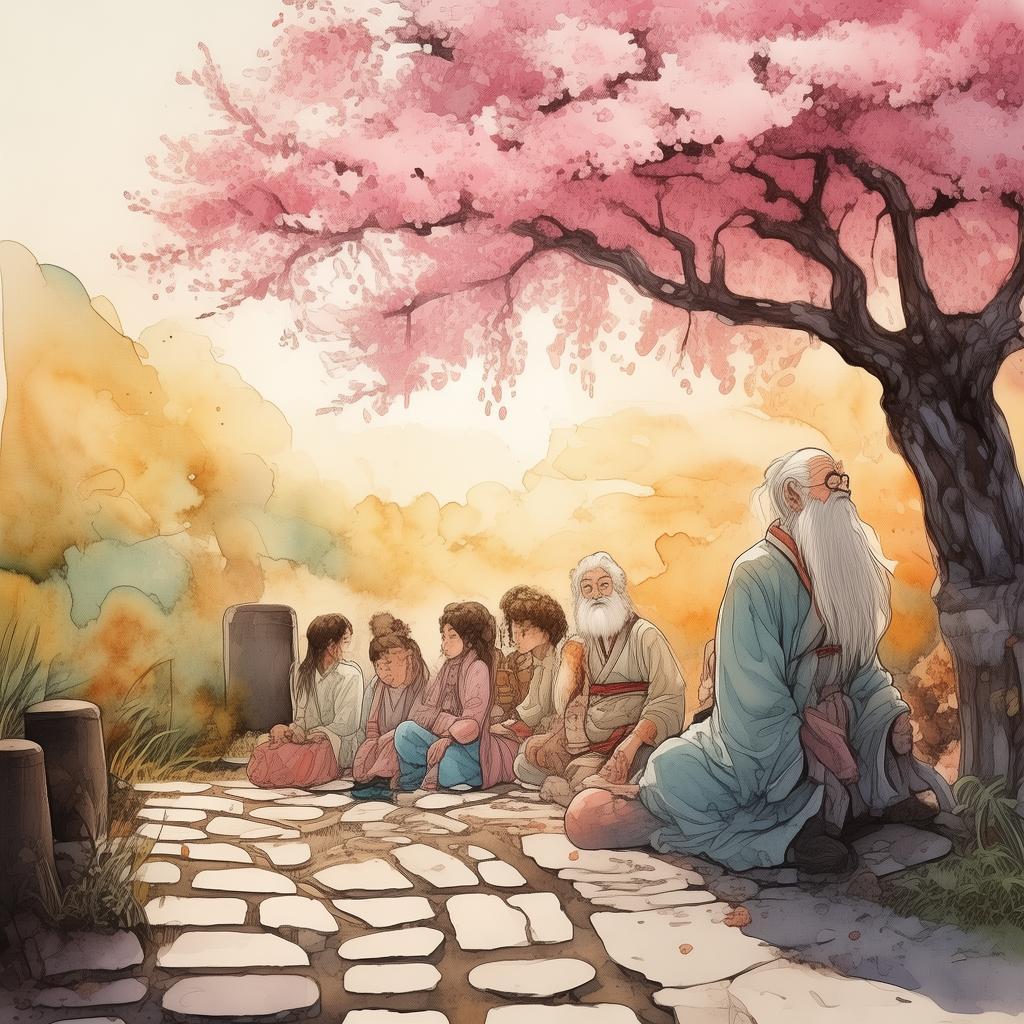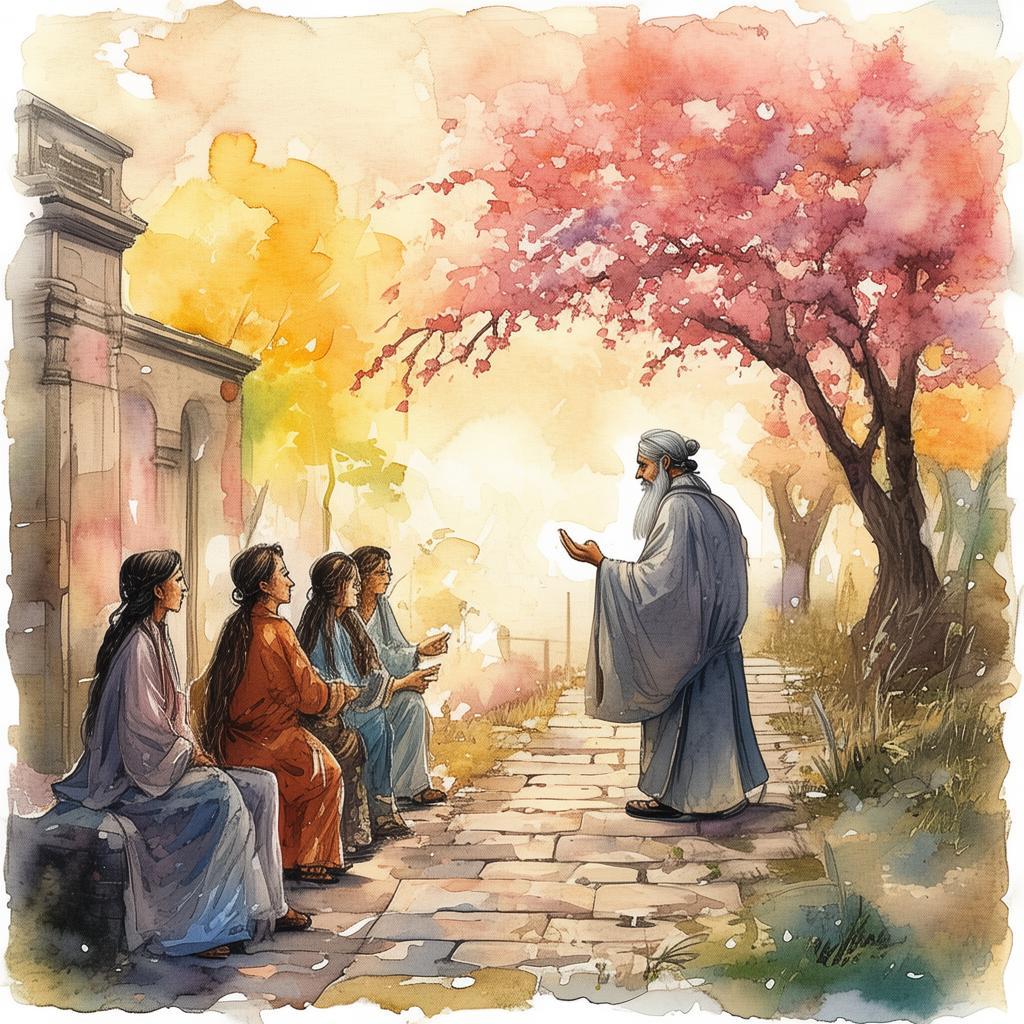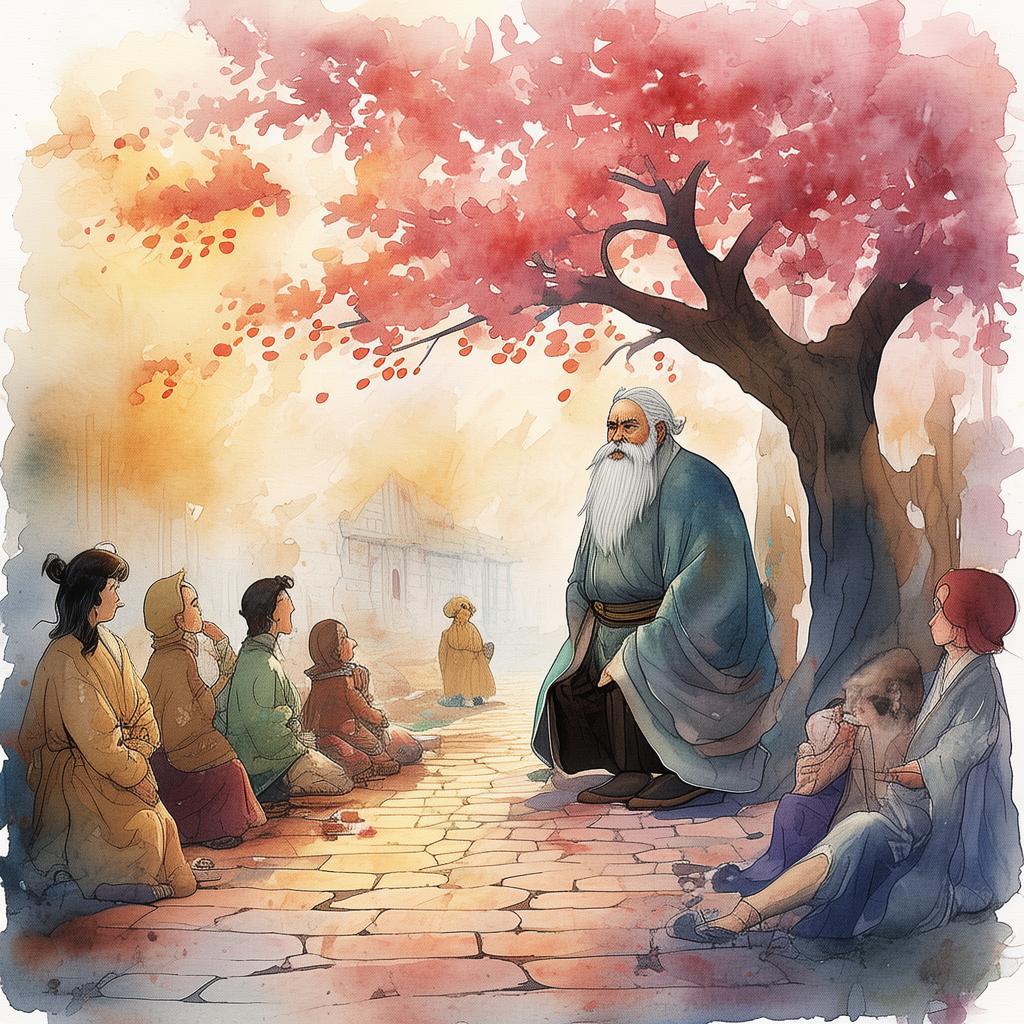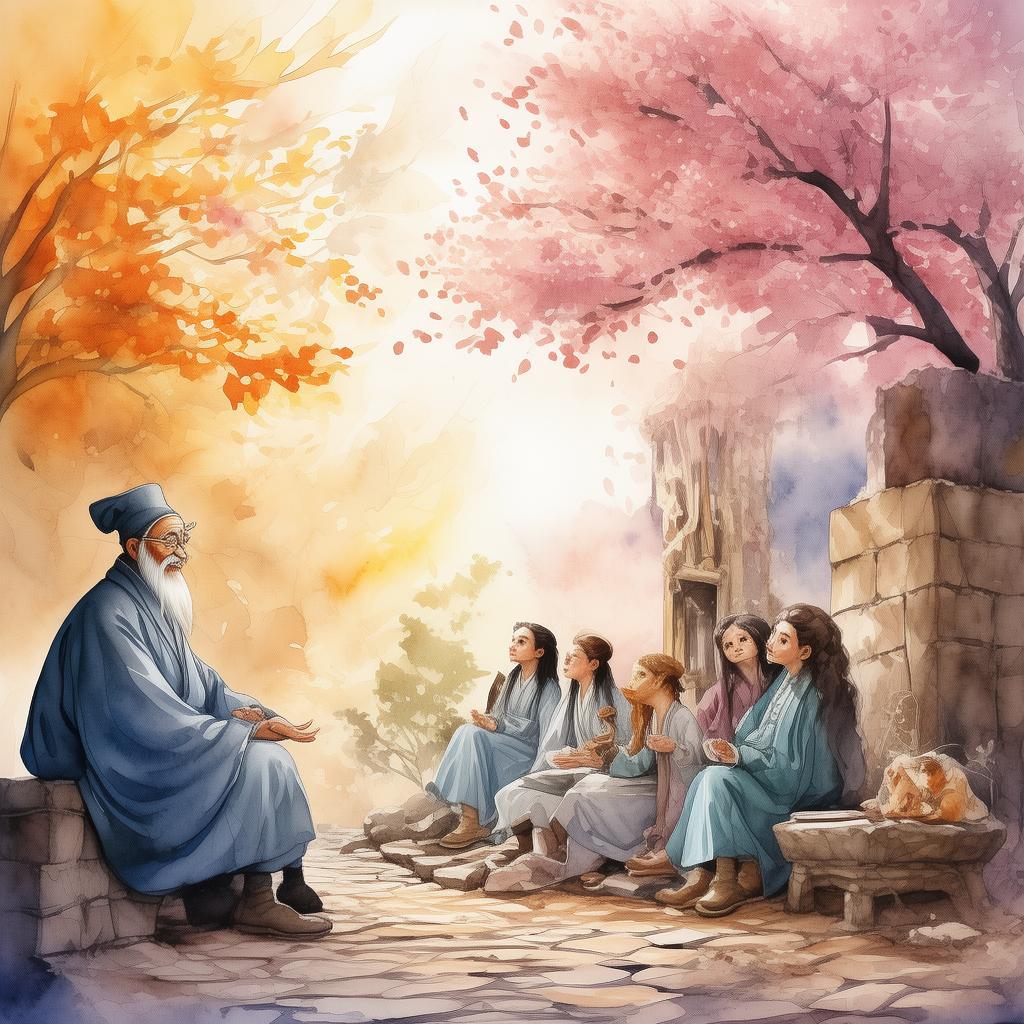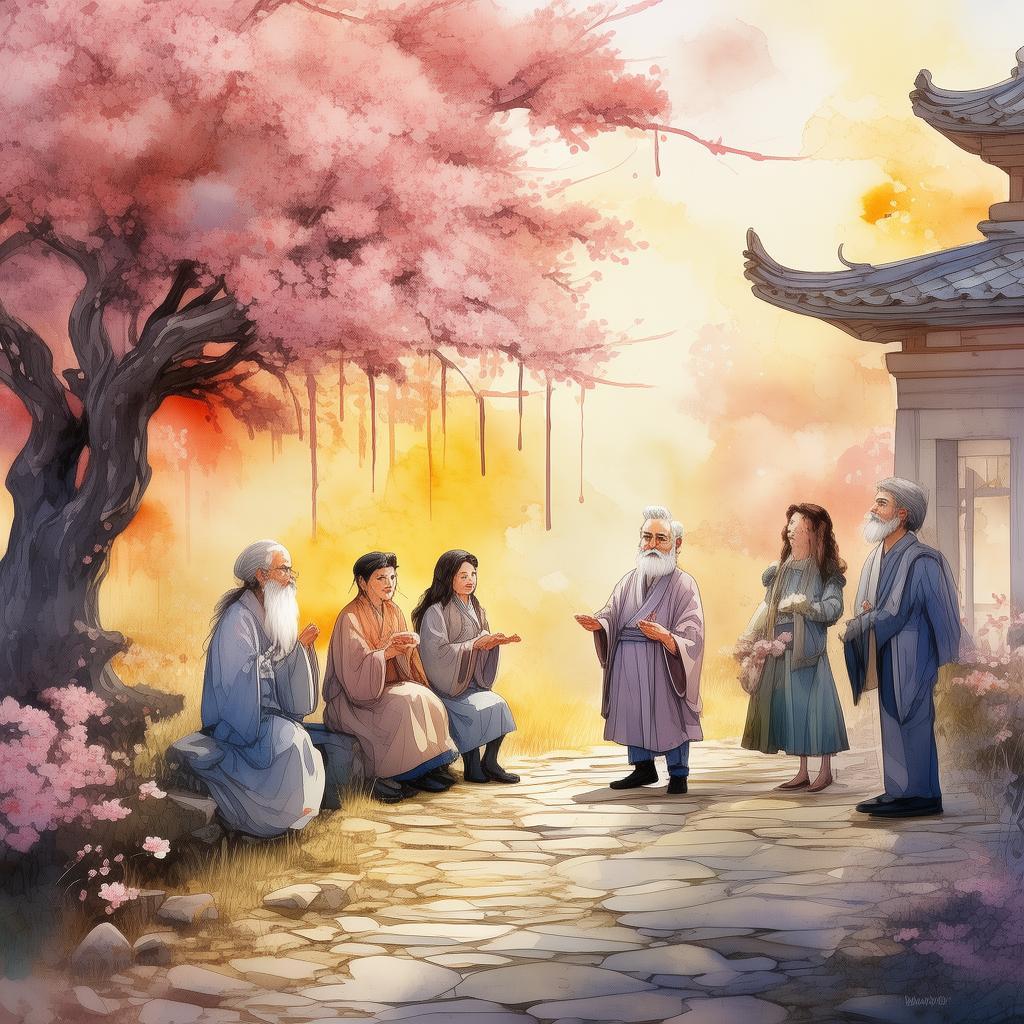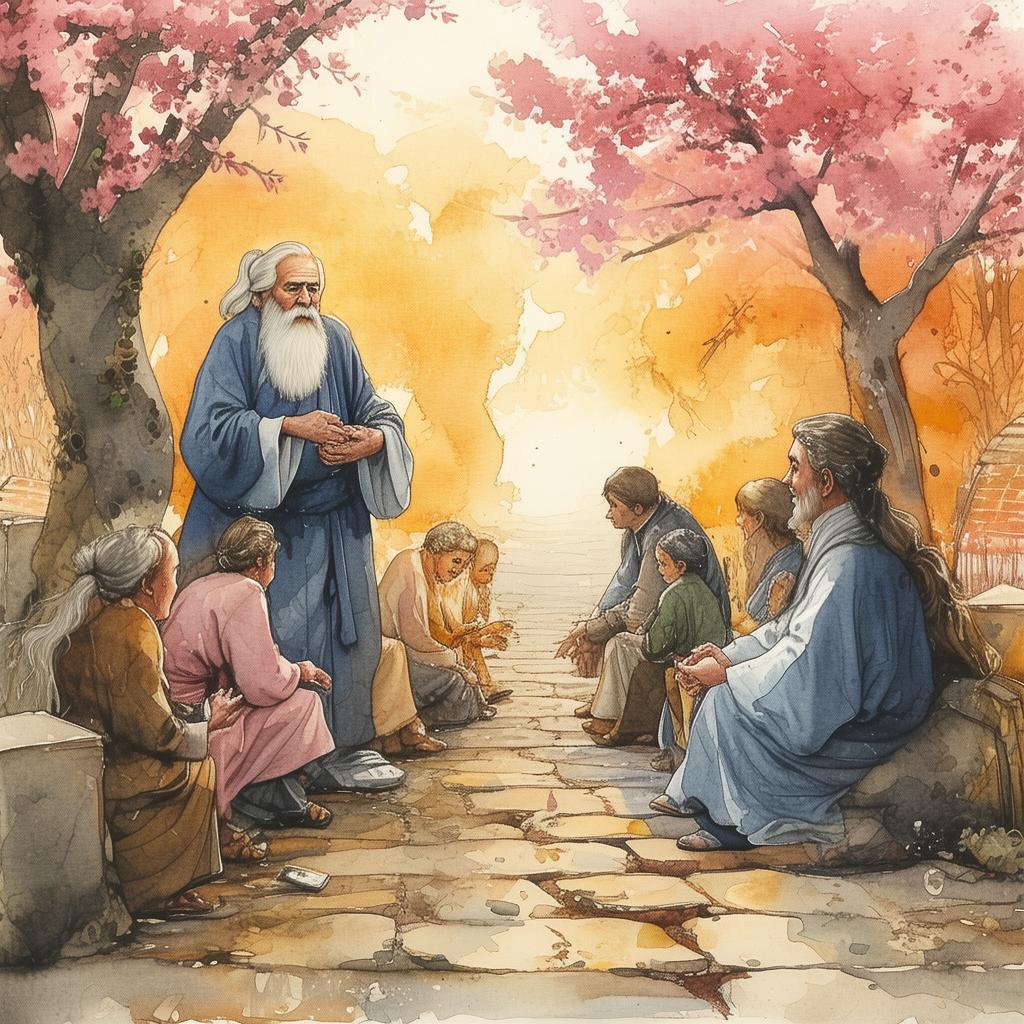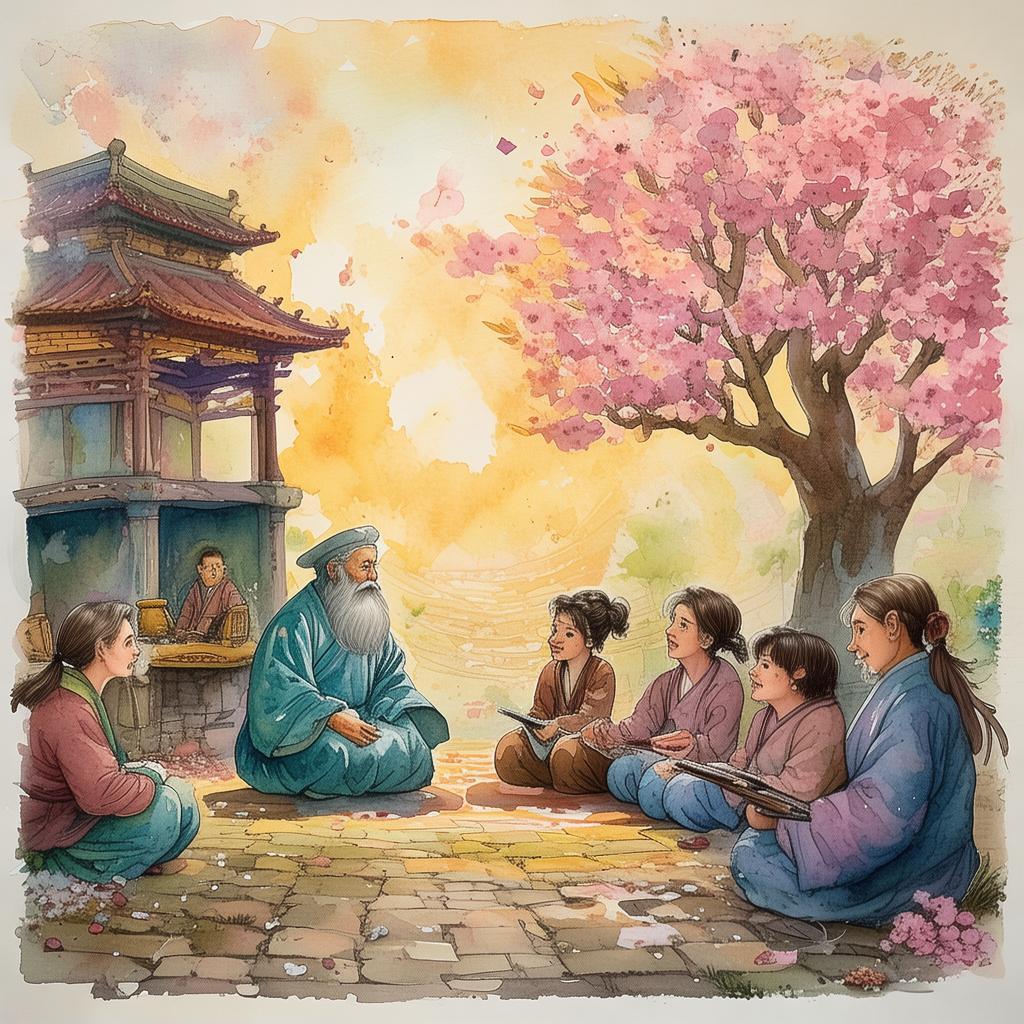The Labyrinth of Prophecy: The Unseen Path
In the heart of ancient China, where the whispers of the gods still lingered in the shadows of forgotten temples, there was a young scholar named Jing. Jing was not just any scholar; he was a prodigy with an insatiable thirst for knowledge and an uncanny ability to decipher the deepest mysteries of the past. His life was one of relentless pursuit, always seeking the next great truth.
One day, while rummaging through the dusty archives of the Imperial Library, Jing stumbled upon an ancient scroll that had been overlooked for centuries. The scroll was cryptic, filled with arcane symbols and cryptic riddles that seemed to dance on the page. As he translated the scroll, a single sentence leapt out at him:
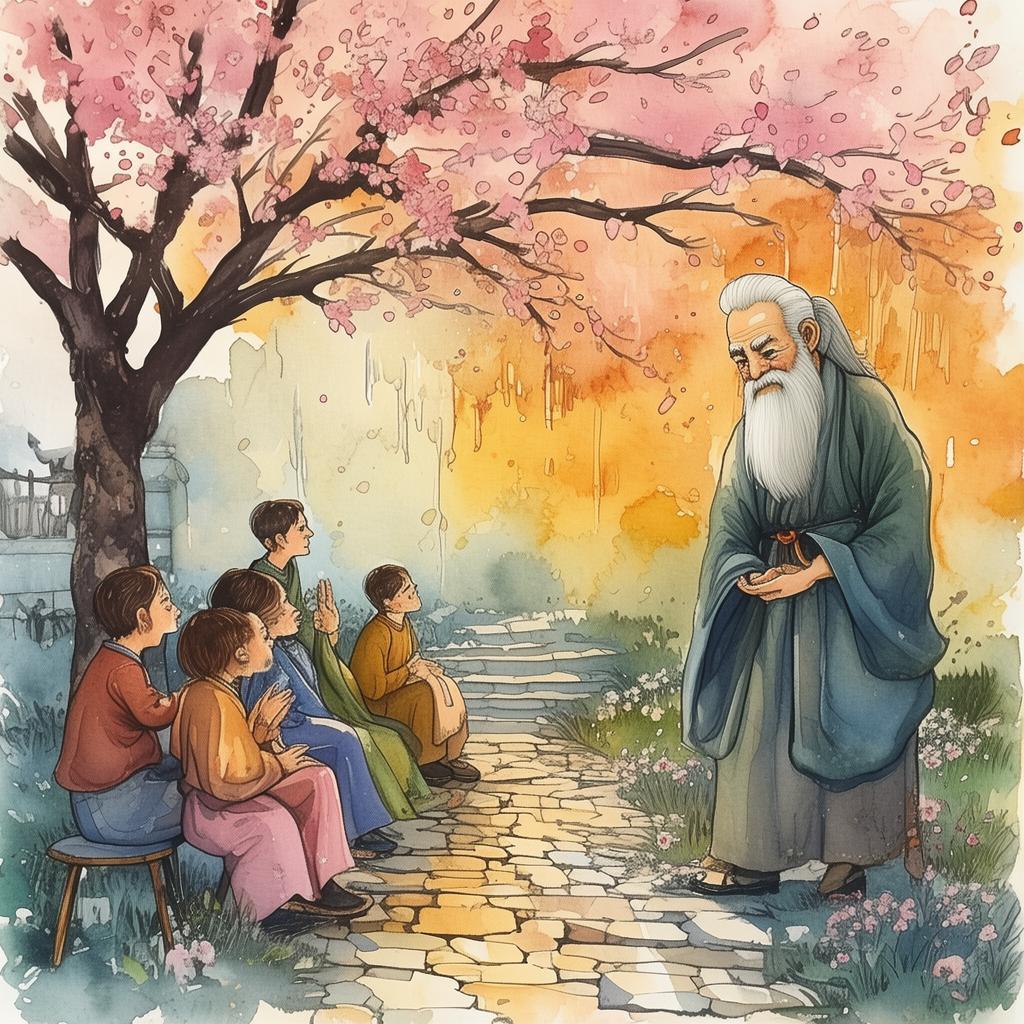
"The labyrinth of destiny lies hidden, where the path of prophecy is unseen."
Jing's heart raced. He knew this was no ordinary scroll. It spoke of a labyrinth, a place of trials and revelations, and it hinted at a prophecy that could change the course of history. Determined to uncover the truth, he set out to find the labyrinth that was said to be hidden within the heart of the Forbidden City.
The journey was fraught with peril. Jing faced off against bandits, evaded the watchful eyes of the Imperial guards, and navigated the treacherous alleys of the city. Each step brought him closer to the labyrinth, but also closer to the truth about the prophecy.
When he finally reached the entrance of the labyrinth, Jing found himself in a room filled with mirrors and illusions. The path before him was shrouded in shadows, and the air was thick with the scent of ancient secrets. He knew that the labyrinth was not just a physical place, but a test of his mind and spirit.
As he ventured deeper into the labyrinth, Jing encountered a series of riddles and trials. Each challenge required him to use his knowledge of ancient texts, his understanding of the natural world, and his own intuition. He encountered spirits that spoke in riddles, creatures that were both friend and foe, and the labyrinth itself, which seemed to shift and change with each step he took.
Finally, after what felt like an eternity, Jing reached the heart of the labyrinth. Before him was a pedestal, and upon it lay a scroll, identical to the one he had found in the library. But this scroll was not empty. It contained the lost prophecy, a prophecy that spoke of a great upheaval, a time when the world would be tested by fire and ice, and only the pure of heart would survive.
As Jing read the prophecy, he realized that he was the one destined to guide the people through the coming trials. He was the keeper of the unseen path, the one who would lead them to safety and prosperity.
With the prophecy in hand, Jing left the labyrinth and returned to the city. He shared his discovery with the emperor, who was initially skeptical but soon saw the wisdom in Jing's words. The emperor tasked Jing with writing down the prophecy and spreading its message to the people.
As the days passed, the city buzzed with talk of the prophecy. People began to prepare for the trials that lay ahead, and Jing, with his newfound wisdom, guided them with compassion and strength. The path of prophecy was now seen, and the people of the land knew that they were not alone in their struggle.
The Labyrinth of Prophecy: The Unseen Path is a tale of courage, wisdom, and destiny, a story that will resonate with readers long after they turn the final page. It is a testament to the power of knowledge and the strength of the human spirit in the face of the unknown.
✨ Original Statement ✨
All articles published on this website (including but not limited to text, images, videos, and other content) are original or authorized for reposting and are protected by relevant laws. Without the explicit written permission of this website, no individual or organization may copy, modify, repost, or use the content for commercial purposes.
If you need to quote or cooperate, please contact this site for authorization. We reserve the right to pursue legal responsibility for any unauthorized use.
Hereby declared.

